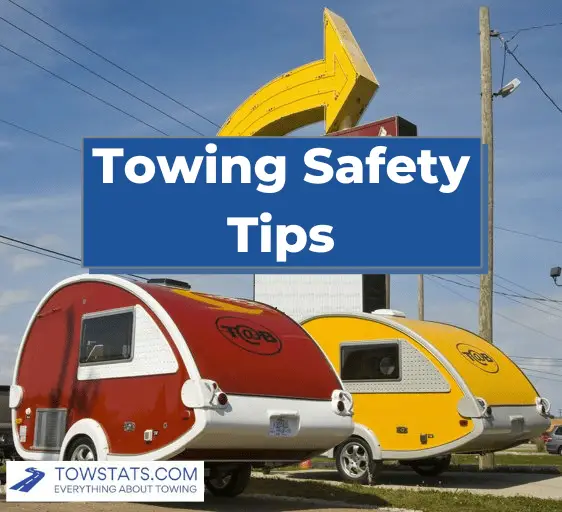When towing a trailer, it is important to remember to follow towing safety guidelines since you are handling a large and potentially dangerous load.
There are many things you can do to make sure your trips are safe for both you and your vehicle.
In this guide, we will outline 20 trailer towing safety tips that will keep you and your vehicle safe on the road.
Follow these tips and enjoy stress-free travels with your trailer!
Why Towing Safety Matters
Following proper towing safety guidelines is a big deal, as it directly relates to the safety of you, your passengers, other passengers on the road, and all the vehicles and property related to those near you.
You’re also statistically more likely to cause or be involved in an accident when towing something behind your vehicle.
In 1970, a study by the Insurance Institute for Highway Safety (a precursor to the NHTSA) found that passenger vehicles towing trailers are four times more likely to have an accident.
Towing can be lots of fun and is extremely useful, but must be done right in order for things to go well.
There’s a lot that can go wrong, so it’s important to pay close attention before you get going.
Don’t be overwhelmed, though: with a little preparation you can ensure a smooth experience for your next towing adventure.
Choose The Right Towing Equipment For The Job
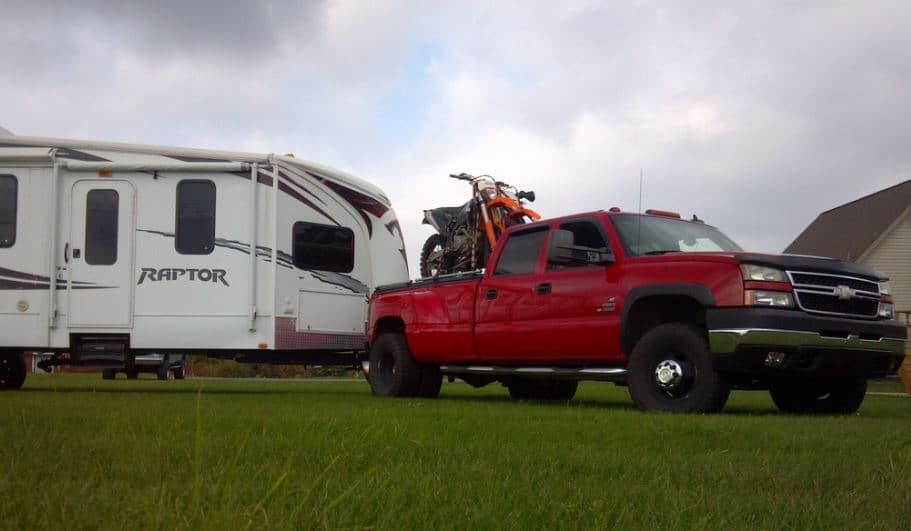
The first step to safe trailer towing is choosing the right equipment for the job.
Make sure your vehicle towing capacity can handle the weight and size of your trailer.
If you are unsure, consult with a professional or your vehicle’s owner’s manual.
Choosing the right trailer type, hitch size, and other towing components is just as important as your vehicle’s towing capacity.
Check out our guides for more information on choosing the right towing equipment and hitch receiver sizes.
Inspect Your Trailer Before Every Trip
Before hitting the road, it is important to inspect your trailer.
Take a look at every connection, including the wiring harness, coupler, and any others to make sure they’re secure and won’t come loose on the road.
Confirm that your safety chains are crossed below the trailer’s tongue and are connected well.
Check that all lights are working properly and that the brakes are in good condition.
Also, check the tires for any signs of wear or damage, and ensure that you’ve got them at the right tire pressure for towing.
It is better to catch any problems before they become bigger issues on the road.
Check out our guide on how to hook up a trailer for more practical advice on this step.
Load Your Trailer Properly
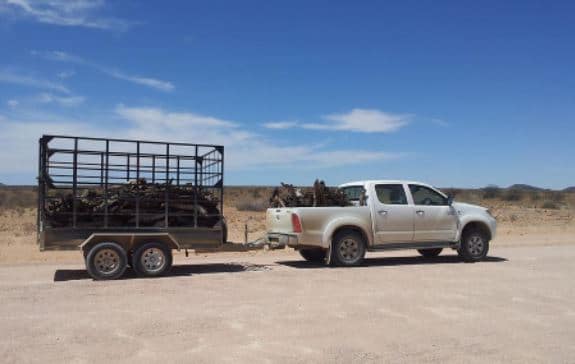
When loading your trailer, distribute the weight evenly throughout.
Don’t overload one side of the trailer as this can cause problems with balance and stability.
It is also important to secure your load so that it does not shift while you are driving.
This can be done with straps, netting, or tie-downs.
Making sure you know how to load a trailer can make a huge difference in your towing experience, so don’t cut corners here!
Make Sure Your Tow Vehicle Maintenance Is Up To Date
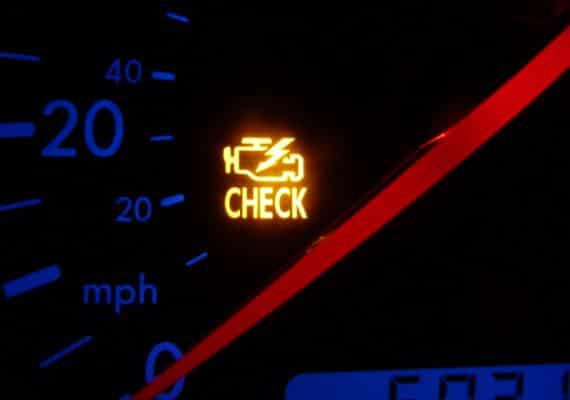
Towing a trailer is extra work for your vehicle, so make sure that you’ve done all the necessary maintenance before your trip.
This includes oil and filter changes, checking brake pads, engine coolant levels, and your transmission fluid.
Take a look at your trailer brakes and make sure the wheel bearings are greased while you’re at it.
Keep A Spare Trailer Tire Handy
Make sure you have an extra tire that matches your trailer and air it up before your trip.
You don’t want to be stuck on the side of the highway or down some back road with a flat trailer tire trying to figure out what to do.
Additionally, make sure you bring a jack and the proper wrench or socket size to fit your trailer’s wheels.
Know Your Trailer’s Wheel Limitations
While we’re on the subject of wheels, it’s important to know what your trailer’s wheels can handle.
Some trailers with smaller wheels may have lower speed limits than you would guess.
Take a look ahead of time and never exceed the trailer wheels’ speed limit to ensure your trip goes smoothly.
Be Aware Of Your Surroundings
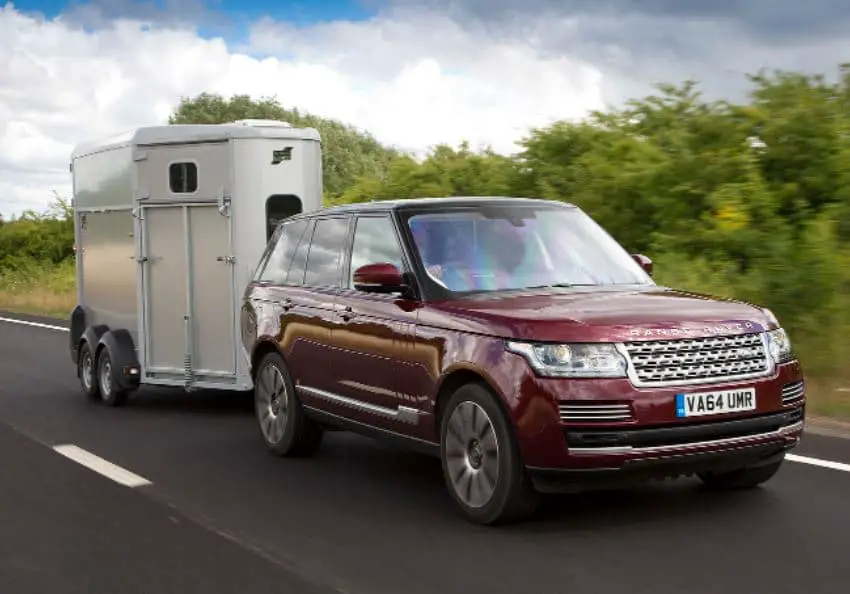
When towing a trailer, you will need more space to maneuver than when you are driving a car alone.
Make sure you give yourself plenty of time to brake and leave extra space between you and the car in front of you.
Stopping while towing a trailer takes longer than it does while only driving your vehicle.
Also, be aware of crosswinds which can push your trailer around on the road.
Pay Attention To Trailer Sway
Steep downhill grades, crosswinds, high speeds, and large trucks can all cause trailer sway.
Trailer sway causes your trailer to swing back and forth like a pendulum behind you, causing instability and can lead to trouble.
If you start having trailer sway, simply decrease your acceleration and apply your trailer brakes to get everything back in alignment.
Make sure you know how to use a brake controller before you hit the road as well.
There are also different kinds of hitch stabilization devices to reduce trailer sway that you can add to your setup.
Minimize Rear Weight On Your Trailer
Minimizing how much weight you put on the rear of your trailer goes hand in hand with reducing sway, so be sure to distribute your load evenly, centering it near the axle if possible.
Always read through your trailer’s manual for the best way to load weight on it and stay close to those directions.
Drive Defensively
In addition to being aware of your surroundings, it is also important to drive defensively when towing a trailer.
This means being cautious, expecting the unexpected from other drivers, and always obeying the towing speed limit.
Look ahead on the road, don’t tailgate other drivers, and make sure you’re not driving too fast when towing.
Remember, not everyone is as familiar with towing a trailer as you are!
Use Caution When Changing Lanes
When towing a trailer you’ll have extra blind spots and can’t speed up as fast, so you’ll need to take extra care when switching lanes.
Make sure you’ve got extra space in front of and behind your vehicle, and slowly maneuver from one lane to another.
Installing tow mirrors will help you quite a bit in gaining visibility and will go a long way to ensure that you’re towing as safely as possible.
Avoid Abrupt Stops
This goes back to driving defensively and looking at the road ahead.
Remember, your vehicle has less stopping power when towing a trailer, so your brakes are working overtime to perform for you.
Ease into stops as much as you can, applying the brakes sooner than you normally would.
This will help your vehicle’s brakes and trailer brakes last longer over time.
Make sure you’ve got your brake controller calibrated properly and know how to adjust trailer brakes to ensure everything’s in tip-top shape.
Take Your Time When Passing
Just like changing lanes, you’ll need more time and length between you and another vehicle when passing or being passed.
Ideally you should avoid passing on a two-lane road as it is quite dangerous when towing a trailer.
Avoid Getting Stuck
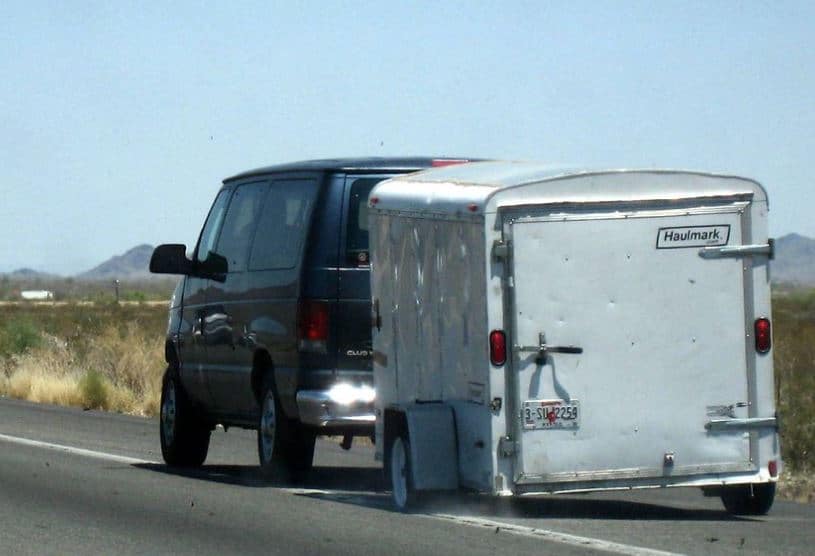
You’d be surprised at how easy it is for even the most experienced drivers to get stuck while pulling a trailer.
Learning how to back up a trailer takes plenty of practice, and even then it can take a long time.
Make sure you have plenty of room to make a complete turnaround when pulling in somewhere, or choose a parking spot further away if you need to.
Allow Extra Time For Your Trip
Towing a trailer will likely add some time to your overall travel time.
When planning your trip, allow for additional time in case you run into traffic or weather conditions that slow you down.
It is better to arrive safe and sound than to be rushed and stressed on the road.
Take Breaks On Long Trips
If you are going on a long trip, make sure to take breaks along the way.
Get out of the car and walk around every few hours to stretch your legs and give yourself a break from driving.
This will help you stay alert and focused on the road.
Be Prepared For Inclement Weather
When towing a trailer, you are more susceptible to being affected by weather conditions such as high winds and heavy rain.
Make sure you are prepared for inclement weather before setting out on your trip.
Have a plan in place in case you need to pull over and wait out the storm.
Never Drive While Intoxicated
This should go without saying, but it is important to mention nonetheless.
NEVER drive while under the influence of drugs or alcohol.
Not only is this illegal, but it is also dangerous for you, your passengers, and other drivers on the road.
This not only applies to towing safety but general driving safety, so you should always apply it.
Use Wheel Chocks
When you get to your destination, make sure to use wheel chocks both in front of and behind your trailer tries to keep it securely in place and prevent it from rolling away on you.
Secure Your Trailer
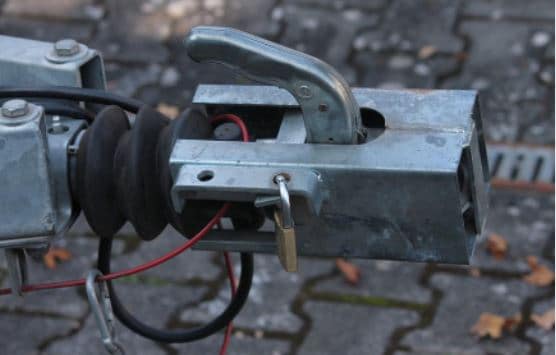
Unfortunately, trailer theft is a common problem and never something that anyone expects to happen to them.
Your trailer is at risk of being stolen whether its hooked up or left on it’s own, so make sure you know how to lock a trailer so it can’t be stolen to protect your equipment.
Trailer Towing Safety Guide: Wrapping Things Up
By following these safety tips, you can ensure a safe and enjoyable trip whenever you hit the road with your trailer.
Do you have any other trailer towing safety tips? Share them with us in the comments below!

